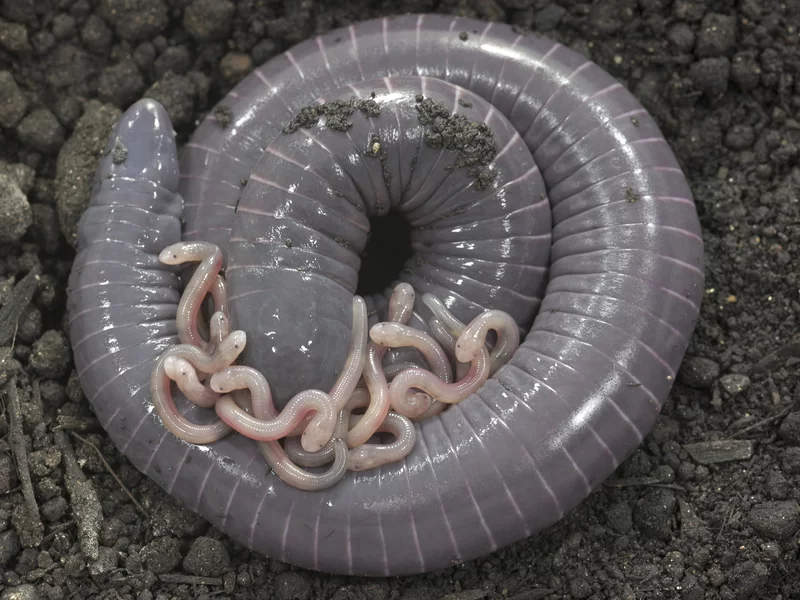MI weekly selection #550

Amphibian feeds its babies milk-like liquid
A legless amphibian, called a caecilian, produces a liquid for its babies that provides lipids and sugars, similar to mammalian milk. Siphonops annulatus babies also eat their mother’s skin once a week, and the team discovered the nutritive fluid after wondering how they could be so active and eat so infrequently, says study leader Carlos Jared.
Full Story: National Public Radio
Sometimes like charges attract, experiments show
Similarly charged particles can attract each other, contradicting the fundamental physics principle that like charges repel and opposites attract. Negatively charged silica microparticles in water attracted each other and formed hexagonal patterns, a result that could inform such applications as crystallization, self-assembly and phase separation.
Full Story: Cosmos
Spinosaurus study challenges previous hunting findings
A study in PLOS One of the late Cretaceous Spinosaurus challenges the idea from a previous report in Nature that the semi-aquatic creature hunted prey in the water. The findings in PLOS One question the accuracy of the bone-density measurement techniques used in the Nature study, and call for caution regarding methodology and sample size in future research.
Full Story: Discover magazine
Million-year-old tools may be Europe’s oldest
Human ancestors living at least a million years ago used tools made of chipped volcanic rock, say researchers who have determined the sediment surrounding the tools in western Ukraine is between 1 million and 1.4 million years old. Authors of the study in Nature say novel dating methods put the tools at 1.4 million years old, which would make them the oldest in Europe, but other experts say they’re closer to 1 million years old, about the same age as tools found in Spain.
Full Story: The Associated Press
Scientists reject new Anthropocene geological epoch
Scientists with the International Union of Geological Sciences’ Subcommission on Quaternary Stratigraphy have rejected a proposal to name a new geological epoch defined by humans’ effect on the planet. Geologists were divided on whether an epoch named Anthropocene should be a formal part of geological history, with some scientists suggesting it’s too soon to declare the time scale.
Full Story: CNN